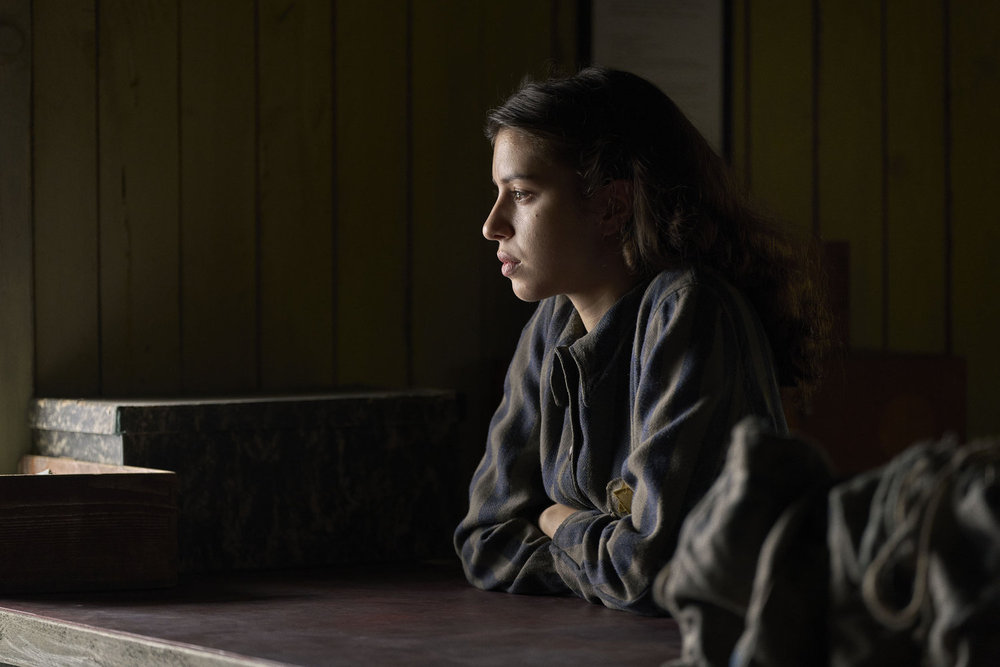Peacock’s ‘The Tattooist of Auschwitz’ follows the real story of Lali Sokolov, who is sent to the Auschwitz-Birkenau concentration camp, where he takes up the job of tattooing the serial numbers on the arms of other prisoners. His story goes through many ups and downs, but his blossoming romance with fellow prisoner Gita gives him the hope and perseverance to survive. In between this, we also find out about a girl named Cilka and the impact she has on Lali and Gita’s life. Because the show is based on a true story, questions arise about the nature of Cilka’s character in ‘The Tattooist of Auschwitz’ and her eventual fate. SPOILERS AHEAD
Cilka Survived the Horrors of a Russian Gulag After Auschwitz

Cilka’s character in the TV show is based on a real woman named Cecilia “Cilka” Kovach, who serves as the inspiration for Heather Morris’ ‘Cilka’s Journey,’ a novel she wrote as a follow-up to ‘The Tattooist of Auschwitz,’ on which the Peacock series is based. Morris learned about Cilka from Lali Sokolov, whom she had interviewed to write a book about his life. The author remembers Sokolov calling Cilka “the bravest person” he’d ever met, and her mention came repeatedly in their conversations, including the fact that she’d helped save Lali’s life.
The real-life Cilka, hailing from eastern Slovakia, was only sixteen years old when she was sent to Auschwitz in April 1942. Almost all of her family members were also sent to the camps, where they all perished in all likelihood, especially considering that Cilka was not reunited with any of them following the war. While the true account of Cilka’s life remains shrouded in mystery (because she preferred not to talk about her experiences), it is believed that her time in Auschwitz led her to make a hard bargain. According to Morris, Lali Sokolov told her how Cilka was kept as a sex slave by one of the SS officers. This is corroborated by the fact that when the prisoners of Auschwitz were liberated, those who collaborated with the enemy were punished by the Russian forces, and this included Cilka.
Allegedly, she was accused of sleeping with the enemy and collaborating, for which she was sentenced to fifteen years of hard labor in the Siberian gulag. What exactly, if at all, was the nature of her relationship with the SS officer and how long it went on cannot be confirmed. It is also alleged that in return for this, she was made the warden of a death block for women who were to be sent to the gas chambers. This allowed Cilka access to better lodgings and better food than other prisoners, but it came with a cost.
In 1945, when the Soviet forces arrived, they sent Cilka to Vorkuta Gulag, an utterly inhospitable place. She was only eighteen years old at the time. There, Cilka met a man named Ivan, who had also been through a very tough time under the Nazi regime. They fell in love, and in 1957, when they were released under the government of Nikita Khrushchev, they married and spent the rest of their lives with each other. Cilka and Ivan didn’t have children of their own, but Ivan, before he was sent to the camps, was married and had a kid named George, with whom he reunited only after his time in the gulag.
In her new life, Cilka worked as a senior government accountant and was a well-loved member of the community, though she was known for not being very talkative. She remained in Slovakia for the rest of her life with her husband, with whom she shared an apartment in Kosice. She passed away in her late 70s in 2004.
Cilka’s story came into public view after Morris wrote about her in ‘The Tattooist of Auschwitz.’ Following the success of her first book, she wrote a spiritual sequel, titled ‘Cilka’s Journey,’ which focuses on Cilka’s life in the gulag. While the book takes events from Cilka’s life (named Cecilia Klein in the book), a lot of things in it are fictionalized, something that invoked the ire of Cilka’s stepson, George, and The Auschwitz Memorial, who claimed that Morris’ book was more fiction than fact, with a lot of things presented in a heavily skewed manner. One of the things pointed out by the Memorial is that a sexual relationship between an SS officer and a Jewish prisoner would have been damning not just for the prisoner but also for the officer, who would have received a severe punishment if the relationship was brought to light.
The show, too, steers clear of portraying the nature of Cilka’s relationship with the officer, only skirting the idea but never really touching it. No matter how Morris may have presented Cilka’s character and journey, the woman displayed extraordinary courage in the face of seemingly insurmountable problems in her life.
Read More: Gary Sokolov: Gita and Lali Sokolov’s Son is Today Honoring Their Legacy


You must be logged in to post a comment.